The New Documentary Charles: In His Own Words Draws a Comparison Between the King and Prince Harry
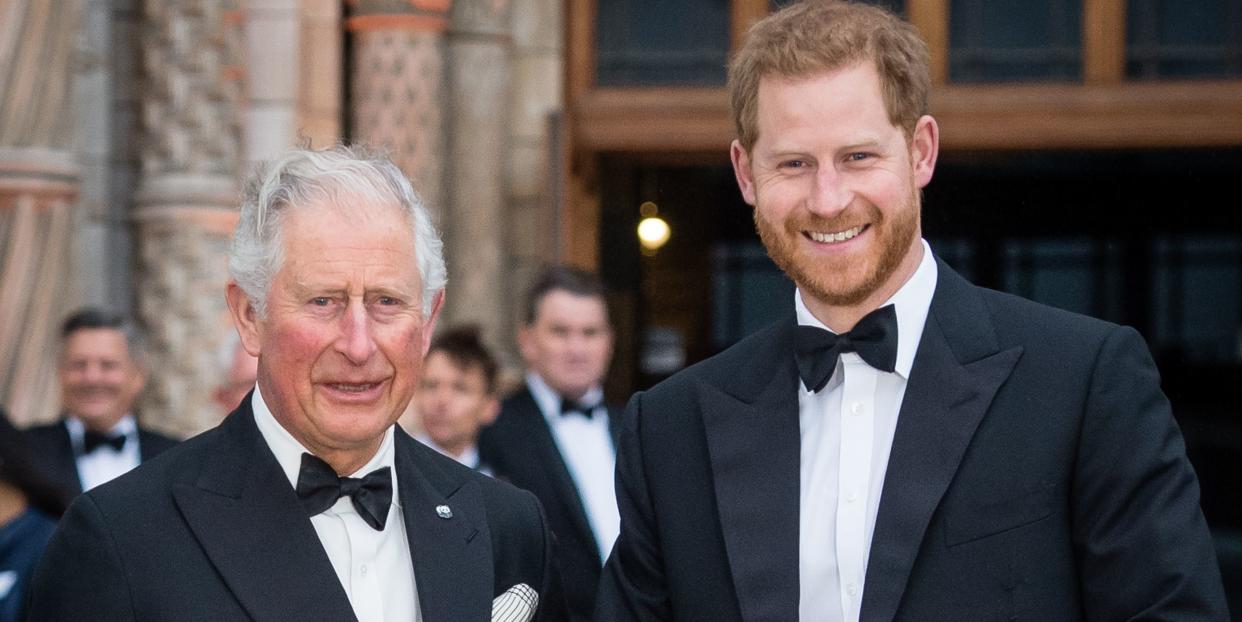
Documentary filmmaker Tom Jennings vividly recalls the early stages of his first royal doc, Diana: In Her Own Words, in which the late princess narrates her life story. Having convinced British journalist and author Andrew Morton to allow him to use the tapes he acquired straight from Diana for his book, Jennings made his way to London. “It was pouring rain. Andrew Morton’s publisher's office is, of course, something right out of Hogwarts. We went in a small writer's room, an assistant brought in a big tray of tea, because she knew we were going to be there a long time, and he hit play,” says Jennings. “For seven straight hours we sat, listening to these tapes as if Diana was sitting right in the room with us, telling us her life story.”
His documentary was a success, begging for a follow up. But when it was time to give the same treatment to Diana’s ex-husband, the soon-to-be-crowned King Charles III, Jennings had to employ a different playbook. “There are no Morton tapes for Charles,” he says. “It would have made things much, much easier.” Instead, to dig deeper into the story of a man many think they know, Jennings uses rare clips of the monarch, ranging from newly digitized and previously unaired news footage from his trips to Australia to playtime with his young sons.
Often using the media perspective as an introduction to themes like “Charles, the rebel prince,” the story is fleshed out either by close confidants like the private secretary to the late Queen Elizabeth or a close school friend. “We were very conscious of the fact that Charles himself, even with all the access we had to rare or unheard material, couldn't give enough context to the bigger story. So, we created a template that we followed,” says Jennings. “We peel back the layer in the storytelling to get closer to the meat on the bone, which is Charles.”
Ahead of the premiere of Charles: In His Own Words, which airs on National Geographic on April 28, T&C spoke to the filmmaker about the surprising similarities between a father and his rebellious son.
Is Charles as a subject matter more difficult than Diana?
Yes. Because there are no Morton tapes of Charles, we had to find a way to present different aspects of his personality: Who is he really? It was almost like a Rorschach test of, ‘Who is Charles, Prince Charles, now King Charles?’ Who will he be once it's all said and done on May 6?
We had to find archival material that would fit under themes that we wanted to explore, which, in some ways, gave us great leeway, because he talks about a lot of different things over the years. He actually is very candid at times, especially with some of the rare interviews or even offhand remarks that he makes. One of my favorites is when you learn about his time at Cambridge when he did all these comedy skits. I didn't know he was such a funny guy. He was a jokester. And then, we found an interview where he is talking about how you can use humor, and that was ten years prior to the speech in the early '90s in Florida, where he says, "I read it in the newspapers. It must be true," and his eyes are telling the audience, "That's a joke. If you didn't get it, I'm going to reinforce it for you."
By coming up with these themes to explore, we were able to co-mingle footage and commentary from Charles no matter what year it was, as long as he's telling a story and the story is in context.
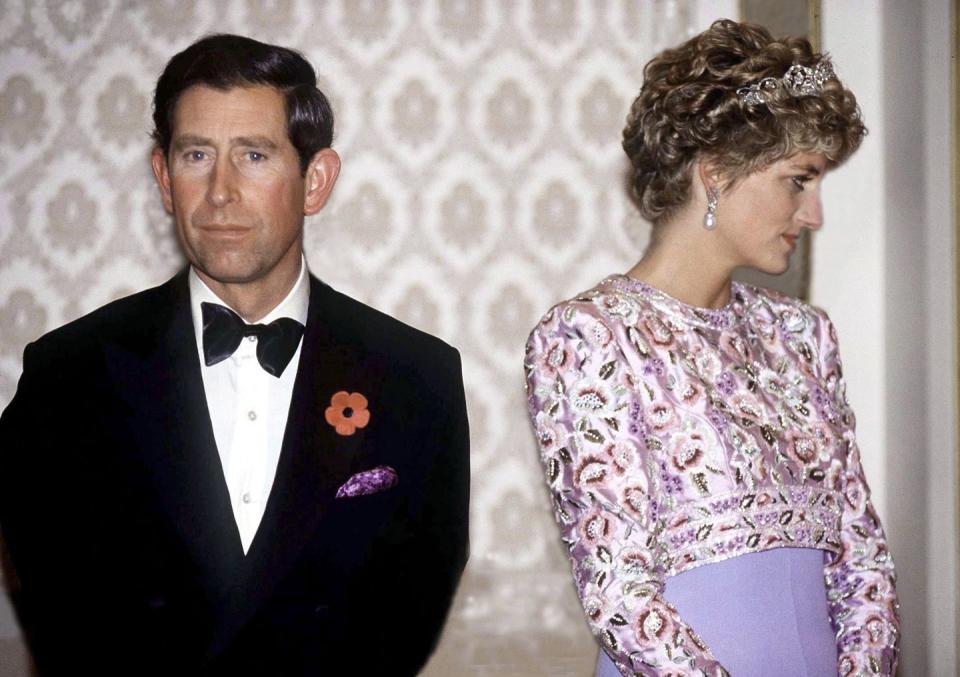
How did you decide that the media’s perspective of Prince Charles was the way to shape the documentary?
Well, the story starts the day the Queen dies. That's when he technically becomes king. And then the leaky fountain pen happens. It's kind of humorous, and everyone can relate, but it showed that even the smallest things that he does is amplified by a thousand by the media. Everything that he's involved with is scrutinized, every step of the way: His relationship with his sons. His relationship with Camilla, and certainly Diana prior to that. His talking about things that royals aren't supposed to talk about, like the environment. Sticking his nose in places where it shouldn't go. How he handles pressure. Every step of the way he's grilled by people, whether in a very nice way or a very adversarial way, and it's all filmed or recorded. It just was one of those light bulb moments, probably halfway through [the process], where we said, his relationship with the media and the media's relationship with him, that's really the backbone of this story.
You call him Charles, the rebel prince. How is he rebellious?
He's been rebellious since he ordered the cherry brandy [in Stornoway, Scotland] at 14. I guess you could start there. But his mother names him Prince of Wales, and instead of previous princes in the royal lineage, who basically just took a title and kicked back, he was determined he wasn't going to be that. What does he do? He goes to Wales and meets these throngs of, well, they were somewhere between protestors and rioters. It was a rough scene. He tells the Secretary of State for Wales, "I'm going to go and talk to them." He's 19 years old and he's willing to put himself out there.
He was an environmentalist, long before we were passionate about things like global warming. Then, he learns how to fly a Navy helicopter, which he does well. He’s like, "If I have all of the benefits that this position brings to me, I'm going to prove my worth by doing something to show people that I'm not just sitting around.” The spider letters—I didn't know much about that story. He's writing 1800 letters for a decade to members of parliament about things like the helicopter performance in the Iraq War.
And, certainly, with Camilla, he was a rebel. I didn't know that they dated in 1970.
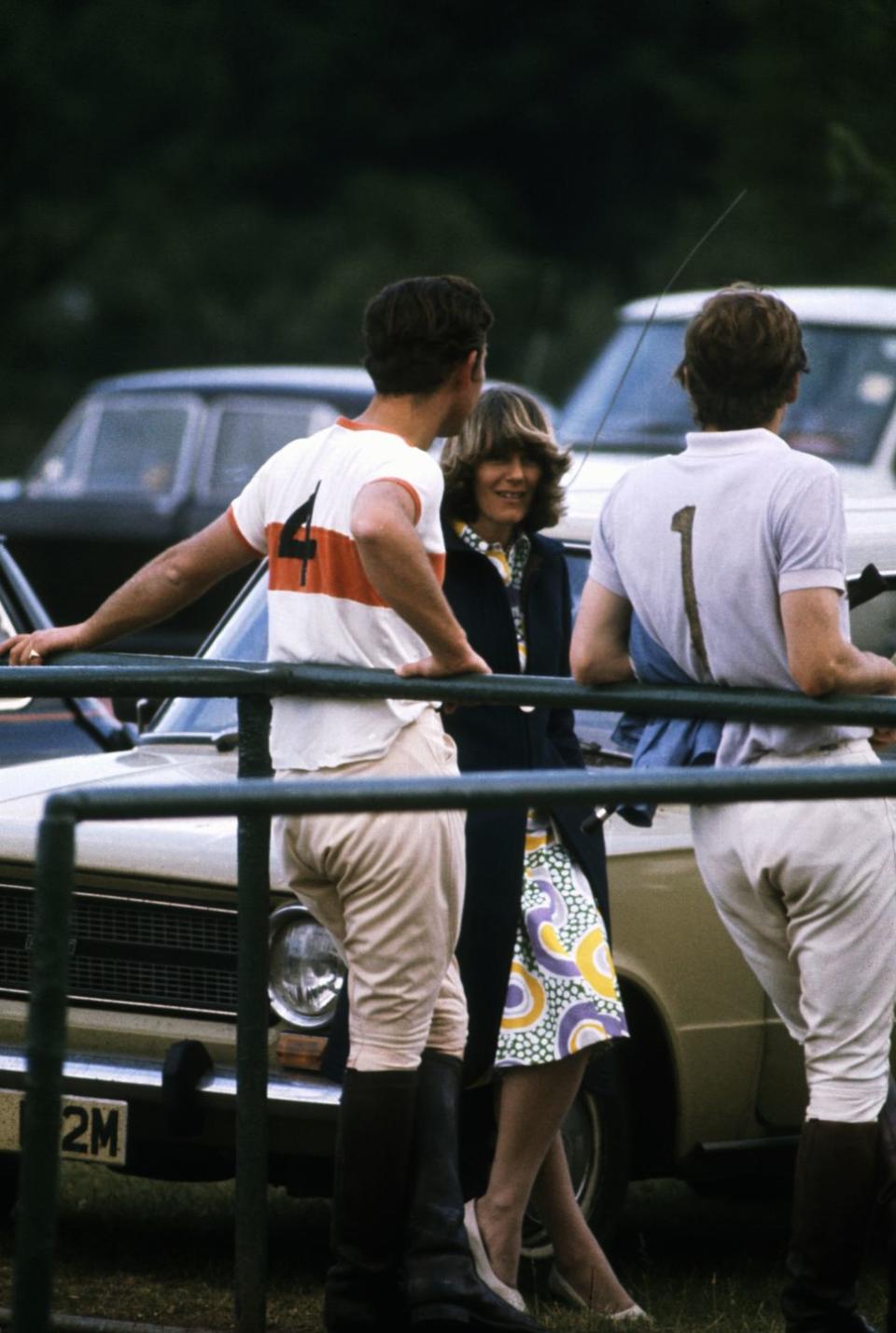
I didn't know they slept together.
Because they got together, that made her ineligible [as his long-term partner]. That is crazy to me, especially through a modern lens. That's why she was never brought into the fold in the first place. He had to find someone virginal. He found Diana. By the way, I love the fact that after the separation between Charles and Diana, his Gallup poll rating was 4%. Who gets a 4%? A frog gets higher than 4% on the Gallup poll. But, anyway, it has been 53 years, and now Camilla is queen.
I think he's calculating and complicated, and that's part of his rebel nature. He has an agenda. He's playing a game that's much longer than anyone realizes. And I'm not quite sure if that's in his DNA or if it was learned, but there's evidence of it throughout our film.
My guess is that he will be a rebel king. You hear, "We have an unwritten constitution that the royal family can't be involved in politics." Well, it's unwritten. [I think] Charles is going to say, "You want me to modernize the monarchy? We're going to have a 21st century monarchy, and guess what? That means, as king, I get to stand in the middle of parliament and say, ‘You better get your act together with global warming or we're in big trouble.’” I think that's part of his long game.
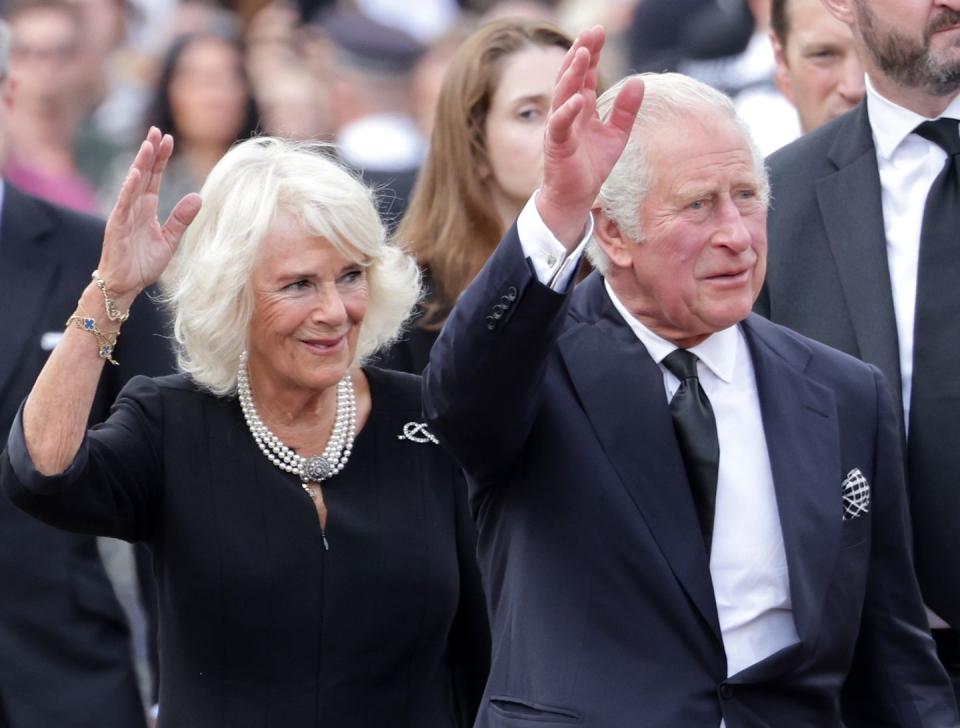
It feels like there are so many parallels that you can draw between Charles and Harry, in terms of their frustration with the constraints of the system. There's now a relationship on the fritz between father and son, but if you look back at what Charles did, it's not so different from what his son was trying to do, in defining his role as a new kind of royal.
Harry's trying to set his own agenda, be his own man, be his own person, his own rebel. I think he has strong beliefs about things, like his father. They talk about very similar things when you think about it. That apple does not fall far. I think it's all this other familial stuff—and this is my opinion. I've not heard anyone say this—but I think a lot of it ties back to the loss of his mother and placing blame, and the hurt and rage that comes with that, really. Once you set that aside, all of the other things that he's doing are very much like what his father has done. I mean, if he didn't have a falling out, he'd probably be much more of a champion of the rebel causes than his brother ever will be. And probably much closer to his father, in a way, because he believes in those causes so fervently. So it's an interesting dynamic, but it does have a Shakespearean element to it. Everything's jumbled and turned around, and I guess that's why we're all fascinated by them.
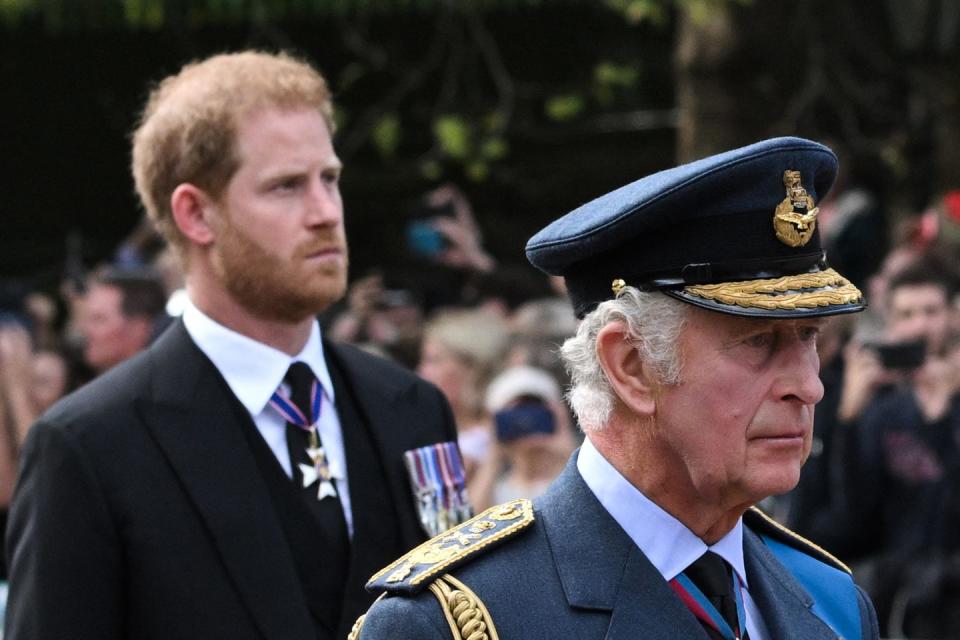
And, if Charles can be seen as pushing boundaries within the parameters of the system, Harry doesn’t seem to be capable of doing the same.
No. And because he's all over the place, it makes for a good story. I loved putting in the images of Charles and the boys playing at that loch in Scotland. People forget those images. It's so sad. Even when Harry gave that one interview about, "My dad tries to protect us. He does a really good job." I mean, there was this bonding of father and sons, and then it just all went away. And I can't quite put my finger on it. People would say, "Oh, it was Meghan." The rift is so strong that the makings of it existed long before Meghan came along.
I think many people have a newfound interest in the royals through The Crown. Do you see the show as being valuable?
By humanizing them, as with anyone else, you gain more empathy for who they are, perhaps a glimpse of understanding that you didn't have before. You see how they could be a proactive force for good, because there are actually human beings hiding behind the coat of arms. So, they have been humanized, probably since Diana, in a way that continues. And The Crown is a perfect example of that.
I read recently that one of the things Charles is going to do is streamline the monarchy. He hasn't been specific about what that means, but if he also makes the individual members of the monarchy either more accessible or more willing to talk about who they are, what their beliefs and hopes are, to make them more human to members of the public, both in the UK and worldwide, I think they'd get a lot more done to try and make the world a better place. But they have been more humanized, I would say, in the last few years, and I think it's for the best.
Watch an exclusive clip from the film:
You Might Also Like


